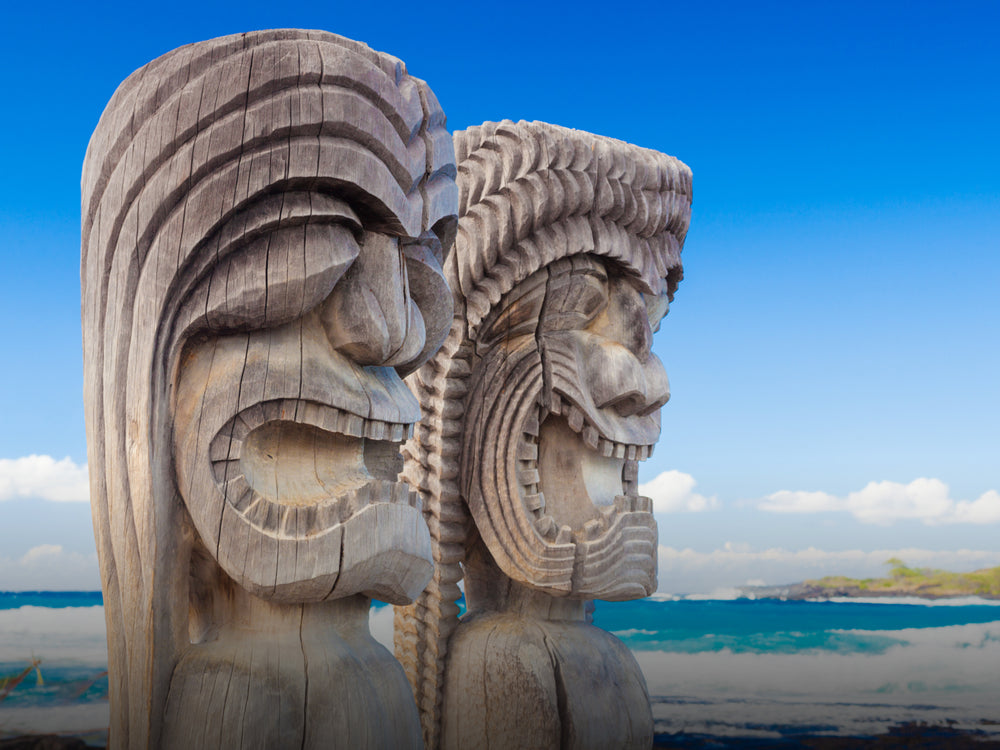Konane
by Veronica S. Schweitzer
Surf's up. The waves are too rough for fishing. Yet the breeze is calm, and the Hawaii sun invites yet another languorous and pleasant day under the palm trees. Imagine your village to be at Lapakahi, now a historic park, located between Kawaihae and Hawi, in Kohala. Imagine spending the day with friends and family. What would you do?
The old Hawaiians loved their leisure time. They harbored a treasure of games. Many of these demanded acute sharpness of verbal and mental skills. Gambling added spice and excitement to them. Ali'i have been known to gamble away their land, while common men have bet their own lives, or the life of a mate. Missionaries frowned deeply on this behavior and discouraged the games. Gradually the Hawaiian games disappeared from the islands.
One of the most popular old games is konane , a sort of checkers, played on a board, or on a slab of lava and rock. In Lapakahi park, an old konane lava rock still overlooks the Pacific. Fishermen must have had their eyes on the board while keeping a vigilant eye on the ever-changing ocean.
The board is called papamu konane (papa means flat surface). The game appears to be authentically Hawaiian. It consists of capturing "men" for justice and for sacrifice. To this purpose black and white pebbles were moved around from hole to hole. The holes, especially the central one, the pika, or navel, were inset with human teeth.
Konane boards across the island don't follow any established pattern in size or play. The amount of holes, set in even lines, varies between 64 on the low end to well over 250 on the high end, seemingly only changing the amount of game time involved. Along the Kohala coast , at Kapaloa, a series of identical petroglyph boards are carved at regular intervals. They must have served for the first elimination matches in an important gambling event for the ali'i: A little further inland, an arena still stands, with one enormous, single checkerboard on its dome. Around this stage there is plenty of room for betting spectators. This was no doubt the final game between champions.
Few writers have dared to describe the rules of konane. It's said that in 1924 a 90-year old woman was the only living person who still knew the game.
Still, why not find a palm tree, and create your own konane game? What better way to pass the time and practice skills of strategy and mind?
Readers may submit editorial comments to any of our stories by sending an email to les@lbdcoffee.com. We would be happy to attach your comments and feedback to anything we publish online. Thank you for your interest.
Story appeared originally in Coffee Times print magazine and appears online for archival purposes only. Any use or reprinting of these stories without the expressed written consent of the author is prohibited.








